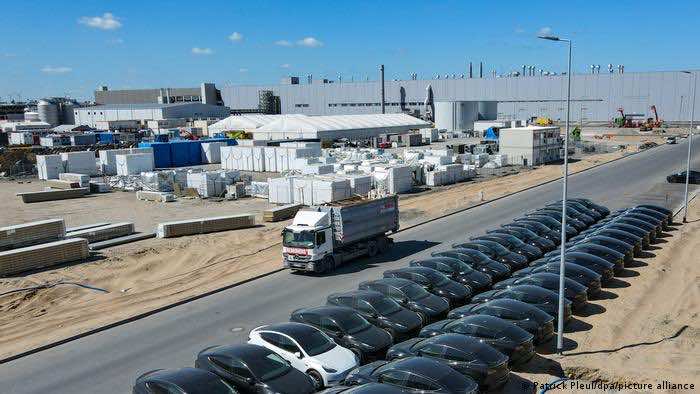As the gates on Tesla’s daunting second-quarter close, CEO Elon Musk appears to have launched a dirty bomb on the market.
During a conversation with members of the YouTube channels Tesla Owners Silicon Valley and The Kilowatts, Musk said that the two new gigafactories in Germany and Texas are “gigantic money furnaces.”
“Both Berlin and Austin factories are gigantic money furnaces right now. OK? It should be like a giant roaring sound which is the sound of money on fire,” Musk said in the interview.
“Berlin and Austin are losing billions of dollars right now because there’s a ton of expense and hardly any output. Getting Berlin and Austin functional and getting Shanghai back in the saddle fully are overwhelmingly our concerns. Everything else is a very small thing, basically.”
In addition, Musk stated that the Texas factory is now “losing insane money” due to difficulties ramping up production of cars equipped with 4680 battery. Meanwhile, the tools needed to build automobiles using the standard 2170 batteries are “stuck in a Chinese port.”
“Just been trying to keep the factories operating the last couple years has been a very difficult thing, like supply chain interruptions have been severe, like extremely severe,” Musk said.
“The past two years have been an absolutely nightmare of supply chain disruptions, one thing after another, and we are not out of it yet.”
These comments will sure alarm investors, coming from a company that has treated stockholders with automotive gross margins north of 30 percent for three straight quarters.
Before Tesla spectators get too psyched, it’s essential emphasising that the problems in Berlin and Austin don’t have to be as catastrophic as they sound—despite Musk’s dramatic depiction.
Naturally, adding a new plant will always affect profit margins since there is a discrepancy between the rate at which early revenue is received and significant upfront investments carried off as fixed expenses over time.
When a factory first begins production, there is almost always a list of technical difficulties that must be worked out. To name a few challenges, the supply chain must be perfect; machines must be tuned perfectly to ensure outer body panels fit together seamlessly without gaps, and workstations must fulfil time requirements to not stall the assembly line.
Therefore, if these difficulties are not tackled from the beginning, missteps pile up and eventually cost the manufacturer significantly more to correct later.
So, while capacity utilisation in Berlin and Austin is both low, Musk has already stated that it will take roughly a year to bring them up to a scale where they can work most efficiently.
However, even after over three months of operation, Berlin just recently passed the 1,000 car per week threshold earlier this month, representing around 10% of its half-million installed capacity.
“There’s a ton of expense and hardly any output,” said Musk.
However, he said: “This is all going to get fixed real fast, but it requires a lot of attention.”
His team plans to keep ramping up in Shanghai, Berlin, and Austin to deliver a 50% (or higher) increase in sales volume this year. With 2022 profits per share expected to be close to $12, the company trades at a forward multiple of approximately 60x, which is high for most companies but justified by bulls because few companies can match that growth.

